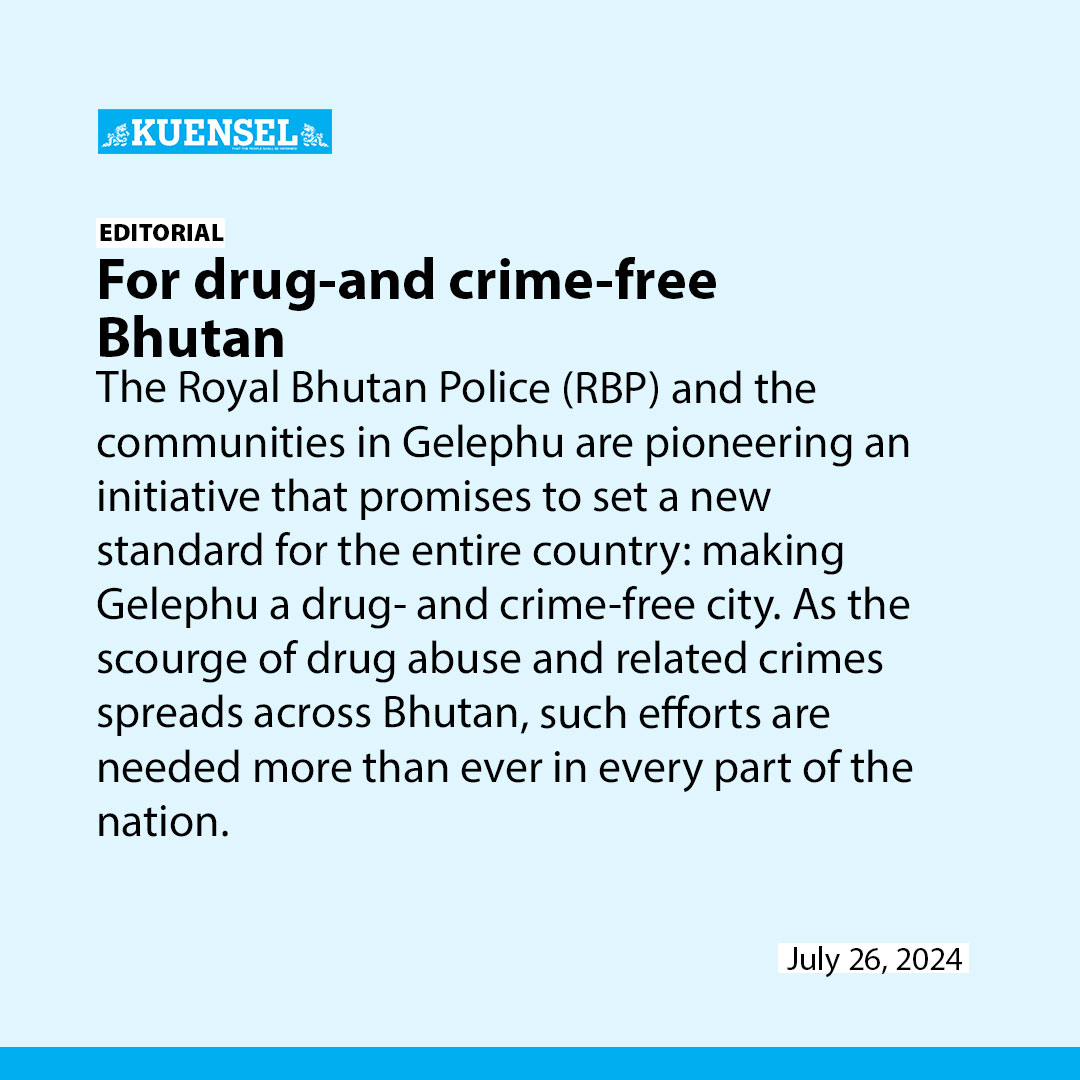The Royal Bhutan Police (RBP) and the communities in Gelephu are pioneering an initiative that promises to set a new standard for the entire country: making Gelephu a drug- and crime-free city. As the scourge of drug abuse and related crimes spreads across Bhutan, such efforts are needed more than ever in every part of the nation.
On July 18, around 200 community members, including youth, gathered to meet the police. During this meeting, the Chief of Police briefed them on the RBP’s immediate initiatives targeted at the youth. He said that rehabilitation programmes for drug users and dependents were crucial interventions in the fight against drug abuse. However, the success of these initiatives hinges on overcoming significant challenges faced by our rehabilitation centres: lack of expertise and inadequate funding.
For any community-based initiative to succeed, especially one as ambitious as making a city drug-and crime-free, a strong foundation is essential. Our current rehabilitation centres are severely under-resourced, both in terms of financial support and professional expertise. To create lasting change, we must address these deficiencies head-on.
One of the most pressing issues is the shortage of trained professionals who can effectively run rehabilitation programmes. Skilled counsellors, psychologists, and social workers are indispensable in helping individuals overcome addiction. Without their expertise, rehabilitation efforts may fall short, leaving many individuals without the support they need to reclaim their lives.
Investing in the training and development of professionals should be a priority. The government, along with non-governmental organisations and international partners, must collaborate to provide comprehensive training programmes. This will ensure that our rehabilitation centres are staffed with qualified personnel capable of delivering high-quality care and support.
Financial constraint is another significant hurdle. Effective rehabilitation programmes require substantial investment—not only in human resources but also in facilities, equipment, and ongoing operational costs. The current funding levels are insufficient to meet these demands, and without adequate financial support, the sustainability of these programs is at risk.
The government should consider increasing budget allocations for rehabilitation services. Additionally, partnerships with private sector entities and international donors can provide much-needed financial backing. Fundraising campaigns and community support initiatives can also play a role in generating resources.
For the rehabilitation programmes to be effective, they must be supported by strong infrastructure. This includes well-equipped centres with the capacity to accommodate and treat individuals in need. Modern facilities, combined with a supportive and therapeutic environment, can significantly enhance the recovery process.
Community-led support groups and volunteer programmes can provide additional layers of support to those undergoing treatment.
The initiative in Gelephu is a commendable step towards addressing the twin issues of drug abuse and crime. However, its success will serve as a benchmark for other regions only if we collectively address the challenges at hand. Strong leadership, adequate funding, and professional expertise are the cornerstones of this effort.


